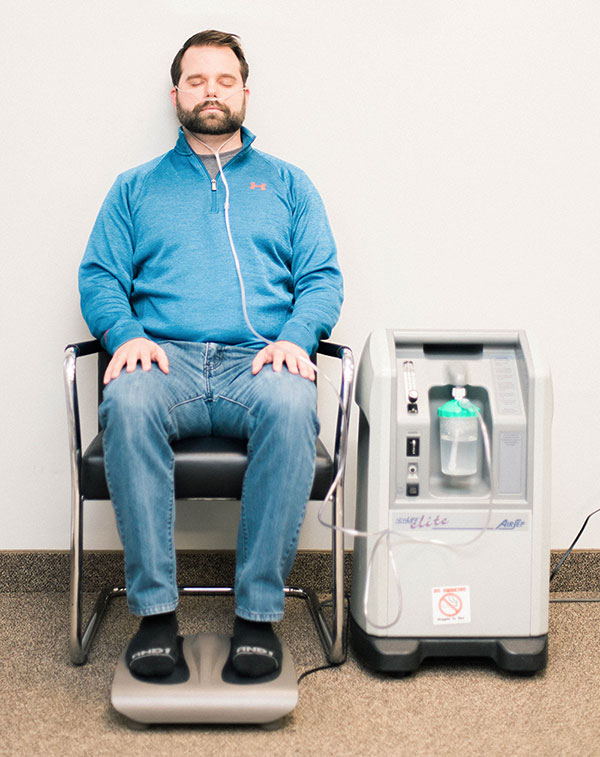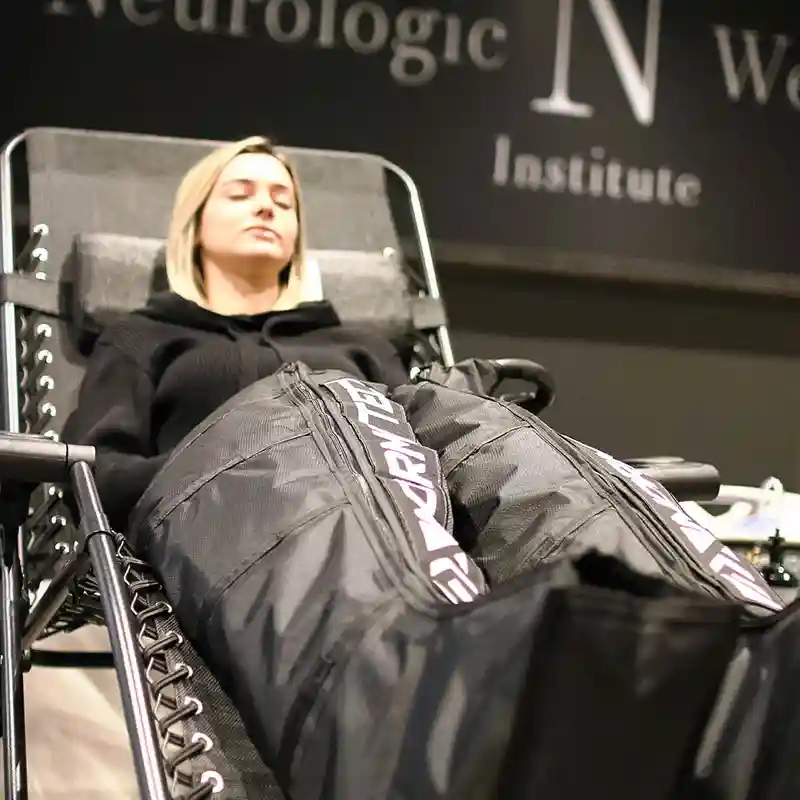Condition: Dysautonomia
NeuroRecovery Program
Dysautonomia is a disorder that negatively impacts the part of the brain responsible for unconscious bodily functions such as heart rate, blood pressure, breathing, digestion, pain control, sweating, and temperature control.
Symptoms
What is Dysautonomia?
Dysautonomia is a group of disorders that affect the autonomic nervous system, the part of the brain responsible for unconscious bodily functions like heart rate, blood pressure, breathing, digestion, and temperature regulation. It is estimated to negatively impact at least 70 million people worldwide, yet many remain unfamiliar with the term.
This condition can cause a wide range of symptoms, including dizziness, fainting, rapid heart rate, difficulty regulating body temperature, and more. Dysautonomia may be categorized into specific conditions such as Postural Orthostatic Tachycardia Syndrome (POTS), Orthostatic Intolerance, and Neuro-Cardiogenic Syncope. While there is no single cause of dysautonomia, its impact on critical bodily functions makes specialized care essential.
The primary goals of dysautonomia treatment include managing symptoms, enhancing daily functionality, and preventing complications. Our Dysautonomia Treatment Center offers tailored functional neurology care plans designed to meet these objectives.
Dysautonomia has been commonly reported after head injuries, illnesses (such as the “flu” or “mono”), vaccinations, and surgeries. Dysautonomia may also run in the family and have a genetic cause. Often there is no known cause for dysautonomia.
See What Our Clients Are Saying About Us
To watch more testimonials, click here.

Many people do not know they have dysautonomia. They are only aware of the symptoms they are experiencing.
Common dysautonomia symptoms include: dizziness, lightheadedness, fainting/passing out, chest pain, heart palpitations/heart racing, headaches, brain fog, anxiety, depression, fatigue, sleep disorders, stomach pain, diarrhea, constipation, nausea, vomiting, muscle/joint pain, unstable joints in the body, and discoloration of hands and feet.

Dysautonomia
Evaluation
Due to the wide range of possible causes and symptoms of dysautonomia, there is no single approach to its treatment.
Our 3-hour initial evaluation allows our doctors to identify and understand the cause and/or triggers of the dysautonomia in order to create a personalized treatment plan.
Our doctors focus on specific neurological and physical exercises, nutritional/lifestyle advice, neurofeedback training, and/or immune regulation therapies to help those suffering from dysautonomia.
Dysautonomia
Treatment
Our doctors have extensive training in dysautonomia treatment, including familial dysautonomia. Over the past decade The Neurologic Wellness Institute has developed innovative treatment options for dysautonomia.
Our doctors focus on specific neurological and physical exercises, photobiomodulation, non-invasive cranial nerve stimulation such as vagus nerve stimulation and trigeminal nerve stimulation, neurofeedback training, and/or nutritional/lifestyle advice to help those suffering from dysautonomia.
*Due to our clinical results in dysautonomia, our doctors lecture around the world on our innovative and personalize therapies.
Criteria for Choosing a Dysautonomia Treatment Center
When selecting a treatment center, it’s essential to focus on several key factors:
- Expertise in Dysautonomia: At our Dysautonomia Treatment Center, our specialists are highly trained in autonomic disorders and how they affect the autonomic nervous system. Our team uses advanced diagnostic tools and personalized care strategies to help patients manage symptoms of autonomic dysfunction.
- Comprehensive Services: The Neurological Wellness Institute offers autonomic nervous system testing and autonomic nervous system treatment through neuroplasticity brain-based therapies, dietary guidance, and lifestyle recommendations. Whether dealing with POTS symptoms, orthostatic hypotension, or dysautonomia symptoms, we tailor care to meet your needs.
- Certifications and Patient Outcomes: Success stories highlight our commitment to enhancing the quality of life for individuals with autonomic failure and other autonomic nervous system disorders.
Understanding Dysautonomia Diagnosis and Management
An ideal dysautonomia management plan at our center includes:
- Neurological Rehabilitation: Personalized treatments that are progressed to your level of function.
- Lifestyle Modifications: Our specialists recommend brain-based treatments, dietary adjustments, nutritional supplementation, and structured physical exercise to support those with conditions like dysautonomia POTS or orthostatic hypotension.
- Monitoring and Adjustments: Regular assessments and treatments ensure your management plan remains effective and adaptable.
Exercise and Dietary Changes for Dysautonomia Management
Although low-intensity exercise is generally recommended for dysautonomia, many of our patients are not healthy enough to begin these exercises. Through an extensive evaluation, our specialists perform specific sensorimotor brain based therapies to allow our patients to begin to exercise safely.
Once able to safely exercise, general recommendations are low-intensity activities such as swimming, cycling, or recumbent workouts to improve blood flow and cardiovascular health without overexertion.
Common dietary recommendations focus on strategies like increasing fluid and salt intake under medical supervision to stabilize blood pressure. Nutrient-rich meal plans with whole grains, lean proteins, and vegetables support overall health and energy levels.
We have found many of our patients with dysautonomia may also have immune dysfunctions as well. This may be accompanied by abnormal immune reactions to foods in which case specific testing, diets, and/or nutritional supplements may be recommended.
Our specialists use insights from organizations like Dysautonomia International to develop tailored programs that align with the latest research in managing autonomic disorders.
Empowering Dysautonomia Patients Through Specialized Care
We understand the challenges of living with dysautonomia. Our Dysautonomia Treatment Center offers expert clinicians, personalized care plans, and proven strategies to manage symptoms and improve your quality of life.
Visit our specialized dysautonomia center to take the first step toward relief. Find out if The Neurologic Wellness Institute is perfect for you.

